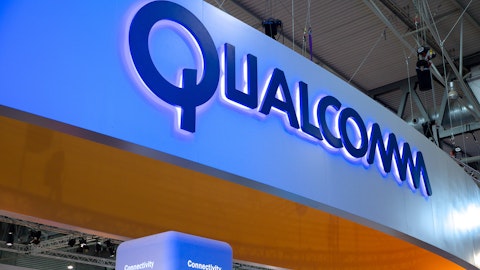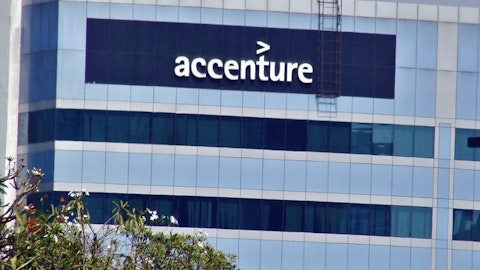In this article, we discuss the 10 worst performing blue chip stocks in 2024.
Strong Market Performance Amid Uncertainty
The third quarter ended with a bang, with all the major indices near record highs as investors shunned macroeconomic instability, soaring geopolitical tensions and U.S. election uncertainty. Strong gains in the quarter were fuelled by expectations of lower interest rates heading into year-end and growing expectations of a soft landing of the U.S. economy.
Artificial intelligence has been a big success story that has helped push the equity markets to record highs. Against the overall trend, the current bull market had a better second year, up 33% compared to the historical average of 13%, and a better first year, up 22% compared to the historical average of 44%, according to BofA. It’s also important to remember that even bull markets’ third years of growth can be rocky.
READ ALSO: 10 Most Promising Future Stocks According to Analysts and 10 Most Promising Growth Stocks According to Hedge Funds.
While the S&P 500 has gained over 60% since the 2022 lows, researchers at BofA note that there could be a significant pullback in the near future.
“Historical studies suggest that the third year of a typical bull market tends to be unremarkable as a mild bout of de-rating overshadows humdrum earnings growth,” BofA equity strategist Ritesh Samadhiya said in a note to clients.
Economic Concerns and Investment Opportunities
While voicing concern that the economy is running at a hotter-than-desired pace, Federal Reserve Governor Christopher Waller hinted that future interest rate cuts would be less drastic than the significant move in September. According to policymakers, recent employment, inflation, GDP, and income reports indicate that the economy might not slow down.
“While we do not want to overreact to this data or look through it, I view the totality of the data as saying monetary policy should proceed with more caution on the pace of rate cuts than was needed at the September meeting,” Waller said in prepared remarks for a conference at Stanford University.
The sentiments come as investors remain cautious about the long-term outlook amid soaring geopolitical tensions and economic uncertainties. The growing uncertainties have been one of the catalysts behind some of the worst-performing blue chip stocks in 2024.
Nevertheless, some underperforming stocks may allow investors to purchase the long-term decline. However, many are just dealing with issues unique to their company, such as bloated balance sheets or broken business models.
It might be a while before the market bounces back. In the interim, investors should be aware of the market’s possible value stocks. Even if it is not popular or profitable in the short term, the long-term benefits of investing wisely and deviating from the crowd can be significant, according to the contrarian investing philosophy.
Investing during a market downturn may present chances for sizable returns in the long term. We examine the top 10 blue-chip losers to date and potential opportunities for investors to acquire them.

Source: Pexels
Our Methodology
To prepare this article, we began by listing all the holdings of the various blue chip ETFs like E.A. Bridgeway Blue Chip ETF, Vanguard Mega Cap ETF, and DOW 30. We then sourced the year-to-date share price returns for each company. Based on these returns, we ranked the companies in descending order.
At Insider Monkey, we are obsessed with the stocks that hedge funds pile into. The reason is simple: our research has shown that we can outperform the market by imitating the top stock picks of the best hedge funds. Our quarterly newsletter’s strategy selects 14 small-cap and large-cap stocks every quarter and has returned 275% since May 2014, beating its benchmark by 150 percentage points (see more details here).
Worst Performing Blue Chip Stocks in 2024
10. Pfizer Inc. (NYSE:PFE)
Year to Date Return: 0.5%
Number of Hedge Fund Holders: 84
Pfizer Inc. (NYSE:PFE) is one of the worst-performing blue chip stocks in 2024; its fortunes have taken a hit with the end of the COVID-19 pandemic. While the company has made a name for discovering, developing, and selling pharmaceutical products, its stock has been under pressure, up by a partly 0.55% year to date compared to a 24% gain for the S&P 500.
Even though Pfizer Inc. (NYSE:PFE) is a strong corporation, it hasn’t been able to overcome its reputation as an afterthought after its tremendous success earlier this decade as a co-developer of the coronavirus vaccine Comirnaty (in collaboration with German biotech BioNTech). The business’s post-pandemic performance has sometimes been stellar.
Pfizer Inc. (NYSE:PFE) gained notoriety for its coronavirus vaccine, becoming the global best-selling pharmaceutical product. Additionally, this contributed to Pfizer’s record-breaking yearly revenue of over $100 billion in 2022.
However, Pfizer Inc. (NYSE:PFE)’s revenue opportunity decreased over the past year and a half as the demand for the vaccine decreased, and the impending patent expirations of other popular products have exacerbated the company’s problems. Because of all of this, Pfizer’s stock has underperformed over the last three years, falling more than 30%.
Additionally, Pfizer has to deal with the important patent expirations of some of its older products, which previously predicted that this would cost the company $17 billion in lost revenue between now and 2030. Eliquis, a blood thinner, and Ibrance, a treatment for breast cancer, are two upcoming major exclusivity losses.
However, Pfizer Inc. (NYSE:PFE) has prepared for this moment. It is currently wrapping up a record-breaking product launch run, bringing 19 new products or indications to market in just 18 months.
Parnassus Investments’ Parnassus Value Equity Fund stated the following regarding Pfizer Inc. (NYSE:PFE) in its first quarter 2024 investor letter:
“During the quarter, we added new positions in Pfizer Inc. (NYSE:PFE), NICE and Charter Communications. We purchased Pfizer to capture the potential upside from any turnaround following the COVID-induced boom-bust cycle of the last few years. Pfizer’s stock price sank by more than 40% in 2023 as COVID-19 vaccine revenues rolled off, providing an attractive entry point for us. The company completed its acquisition of Seagen, which should strengthen Pfizer’s pipeline in antibody-drug conjugates (ADC). Pfizer also offers an attractive dividend yield.”
9. Comcast Corporation (NASDAQ:CMCSA)
Year to Date Return: -1.98%
Number of Hedge Fund Holders: 61
Media and technology juggernaut Comcast Corporation (NASDAQ:CMCSA) has been under pressure over the past few years amid the cord-cutting menace and increased focus on streaming. Likewise, the cable giant stock has slipped 1.98% for the year as investors question its growth metrics.
The company’s sentiments took a hit after it delivered mixed second-quarter results that raised serious questions about its core business. While earnings came in at $1.21, beating analysts’ estimate of $1.12 a share, the slowdown in revenue growth raised serious questions. Revenue was down by 3% to $26.69 billion, missing estimates of $30.02 billion.
The revenue drop resulted from Comcast Corporation (NASDAQ:CMCSA)’s underperformance in content and experience sales. Sales in the segment were down by 7.5% to $10.06 billion. A 27% drop in studio revenue and an 11% drop in theme park sales were the main drivers of the decline.
Compared to the popular films it released in the same quarter last year, the company blamed the park’s declines on fewer visitors and its movie studio’s sales on lower theatrical revenue.
Likewise, the media giant is trying to unlock new growth opportunities by expanding its Peacock streaming service, which provides a new avenue for revenue generation and growth. Comcast’s management seems hopeful that the company’s studio and theme park sales will improve.
Amid the underperformance, Comcast Corp. (NASDAQ:CMCSA) has remained a dividend king as it returns value to shareholders thanks to a solid balance sheet. The stock currently yields 2.95% while trading at a discount with a price-to-earnings multiple 9.
As of the close of Q2 2024, 61 hedge funds in Insider Monkey’s database held stakes in Comcast Corporation (NASDAQ:CMCSA), compared with 63 in the preceding quarter. These stakes have a total value of over $3.6 billion. Among these hedge funds, First Eagle Investment Management was the company’s leading stakeholder in Q2.





